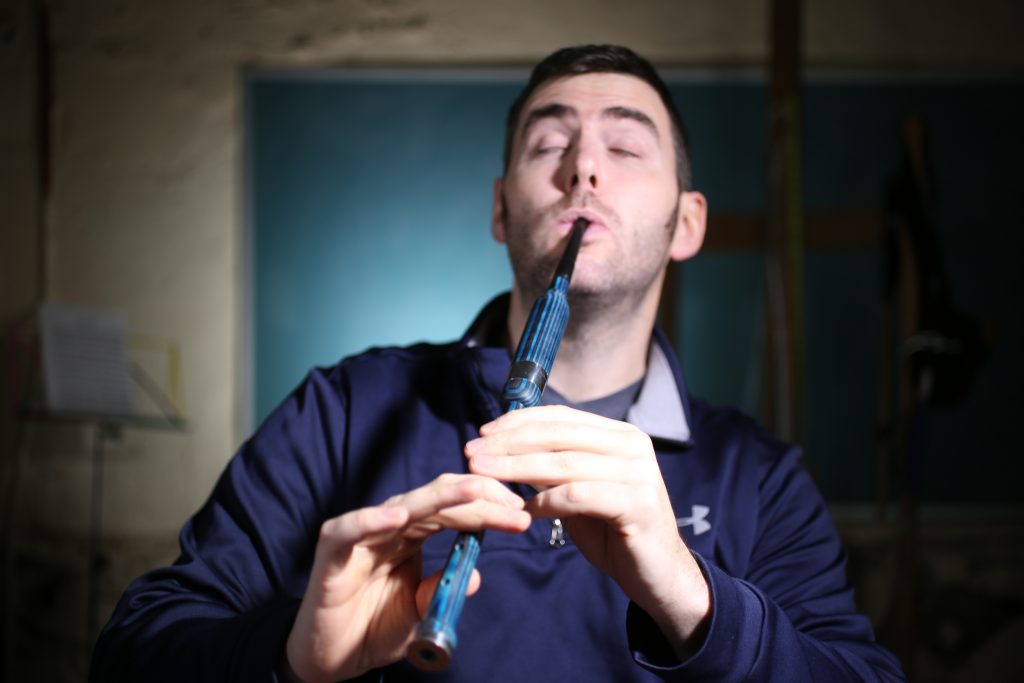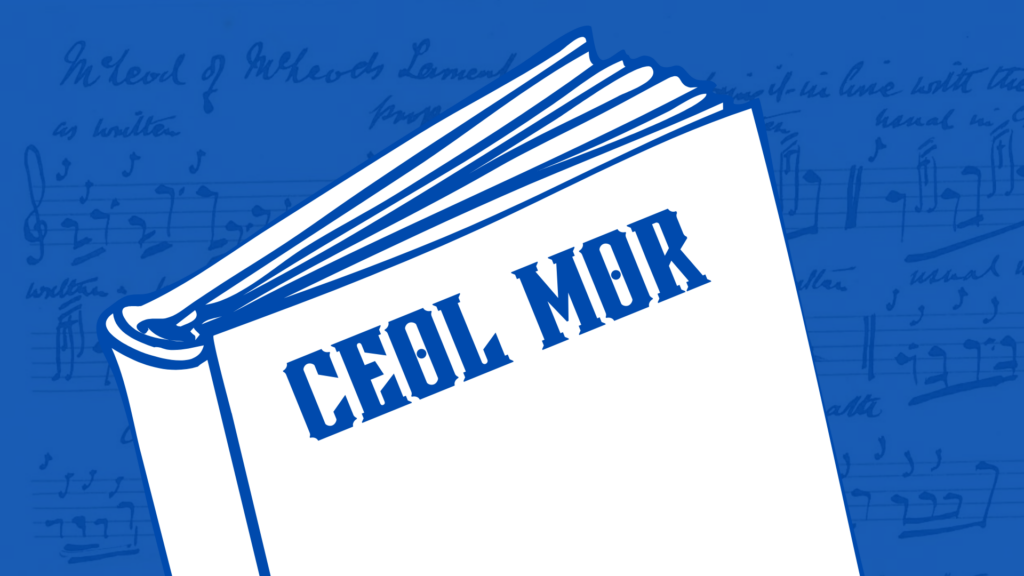Jay Hackney: Only Nine Notes
During my undergrad years at Simon Fraser University, a friend in math class (who was a member of theTriumph Street Pipe Band) started offering lessons on the chanter. Thinking this might be an easy path to musical enjoyment on an instrument which intrigued me, I signed up. We covered a lot of basics. Graduation saw us go our separate ways. My first pipes were loaned to me by a neighbour who was heading off to University himself.
Everyone needs some art, or music, in their lives. I was fascinated by piobaireachd and originally wanted to sound like Bill Livingstone, who I used to hear playing in the Glengarry Games at Maxville, Ontario.
I believe in the satisfaction & reward you can achieve by playing music for yourself and for others. The music of the bagpipe was strange and beautiful to my ear, and with only nine notes, I thought this might be a good instrument to take up.
One important struggle was that: as good as the bagpipe tutor books may have been for giving me a basic framework for playing the pipes, getting a good steady, reliable sound was a challenge. And my playing fell short of what I was hearing on recordings.
I knew that just reading the bagpipe tutors wasn't going to get me to the level I wanted. So while I was enjoying the process of learning and developing as a bagpipe player I knew I needed some additional support to continue my journey more effectively.
I did give up the pipes when having a family and a job meant it was difficult to find time for the pipes. I'm sure that if I had some guidance on how to integrate piping with a busy life I would have found it much easier to continue piping. For example - knowing what and how to practice in order to maximize progress in a more limited time. Having a dedicated space for practice and an instrument that was maintained well enough so I could spend time practicing & playing instead of maintaining it.
When Covid started up I thought returning to the bagpipe would make a good project. The Piper's Dojo was one of the online sites which came up frequently when searching online on bagpipes. The Dojo had a very extensive set of resources so I tried a couple of month-by-month sessions and realized the value of the resources provided.
It would have taken a couple of months before I committed to the Dojo with a membership. I am a self-taught guitar player and had found some online resources which were very helpful, but I don't think I was totally convinced that learning online would really work. There was only one way to find out if it would work for me so I joined.
The Dojo really IS a community - teachers and student all highly focused on getting better as pipers. Learning is a wonderful journey (although it can be frustrating at times). I loved my years at University, and the Dojo is about as close as you can get to that experience where you're surrounded by people - teachers and students - committed to following the same paths of discover as you; each in their own way.
It's given me a clear perspective on what fundamentals I can best focus on. It's much easier to get to where you want to go if you have a good map. The Dojo gives you a good map.
I think it's normal for beginners to be unsure of basics like how to chose a reed that's right for you, how to maintain your bag, calibrate drone reeds, get good sound, how best to use a metronome, the value of a manometer. I struggled with all those issues. Not to mention that I struggled to bridge the gap between how I was playing and how the same music played on a recording sounded. If every time you wanted to go grocery shopping you had to change the oil, pump the tires, clean the spark plugs, fix the turn signals, you'd soon get tired of the whole process. I now have a much better grasp on how to maintain my instrument, tune it, get a good sound, etc so that I can focus on making music.
Dojo has a sensible, logical approach to this. Before you can tune you need to identify a suitable reed, know how to blow at the sweet spot, blow steadily, calibrate drone reeds. Without those basic building blocks tuning can be a mess.
The Dojo fundamentals make this process easier, starting with listening to lots of great music (immersion), then focusing on rhythm, scale navigation, playing simplified versions of tunes (without the embellishments), choosing the appropriate tempo, recording and listening to my playing and learning how to analyze it, having a regular practice routine with a focus on 1-2 specific issues, etc.
My technique has improved greatly as I have a better understanding of what I'm doing (or am supposed to do) and better tools to analyze my progress. Dojo encourages you to regularly learn new tunes (constant variance) and very time I do that I find my technique improves as I learn new combinations of notes or embellishments and build new neural pathways which solidify my technique.
Playing music has always been part of my life. Dojo has given me a roadmap to success with the bagpipe and a means to enjoy the bagpipe learning process.
Dojo has been a part of my development as a player and I had a satisfying year in solo competition reaching one of the goals I had set for myself (moving up a grade). Dojo also greatly helped me develop as a band member - bolstering my courage to join a band, and supporting me as a band player.
Jay Hackney, Nova Scotia, Canada





